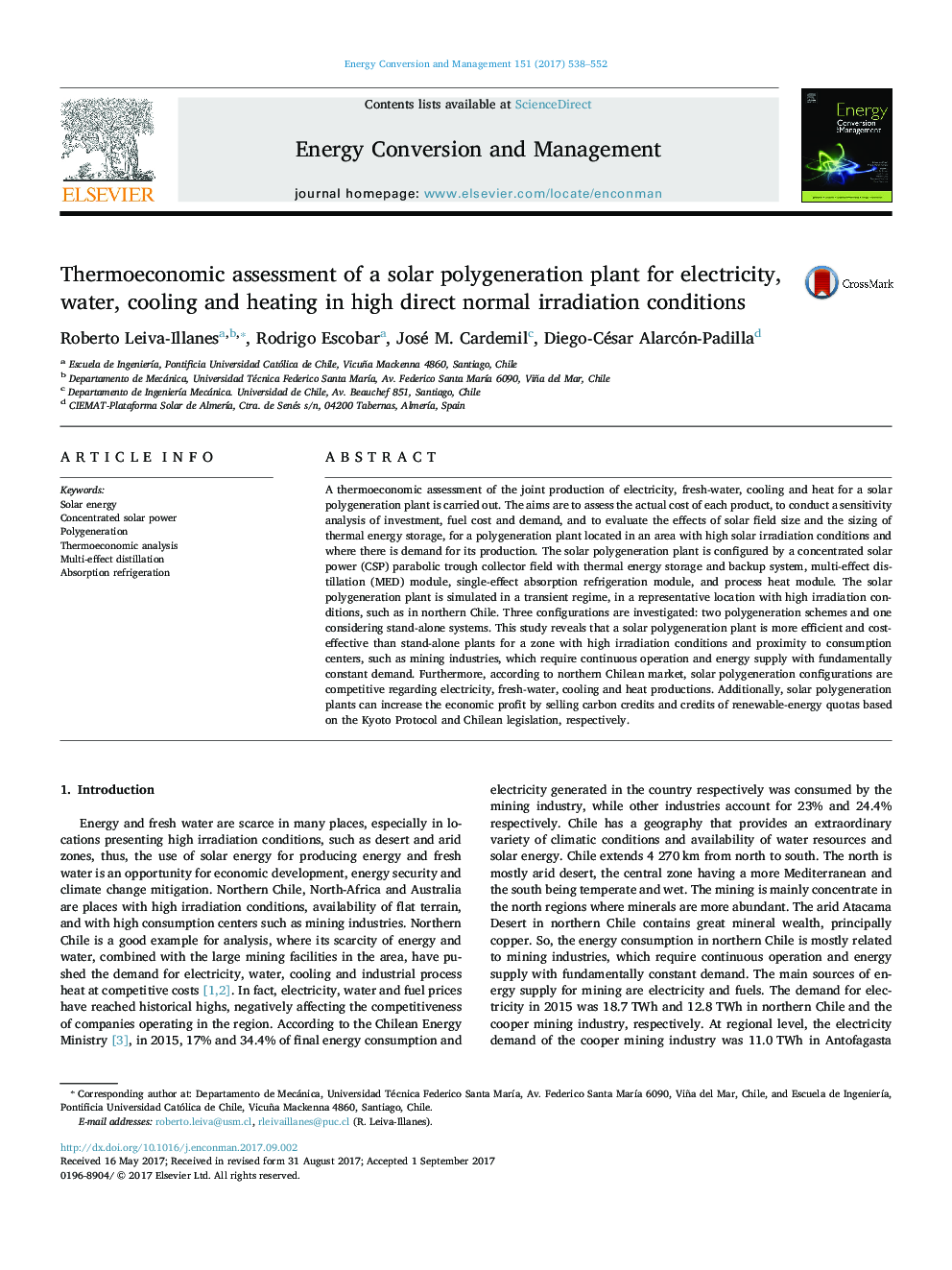| کد مقاله | کد نشریه | سال انتشار | مقاله انگلیسی | نسخه تمام متن |
|---|---|---|---|---|
| 5012391 | 1462811 | 2017 | 15 صفحه PDF | دانلود رایگان |
عنوان انگلیسی مقاله ISI
Thermoeconomic assessment of a solar polygeneration plant for electricity, water, cooling and heating in high direct normal irradiation conditions
ترجمه فارسی عنوان
ارزیابی ترموکوکسیکی از نیروگاه چند منظوره خورشیدی برای برق، آب، خنک سازی و حرارت دادن در شرایط مستقیم نور طبیعی
دانلود مقاله + سفارش ترجمه
دانلود مقاله ISI انگلیسی
رایگان برای ایرانیان
کلمات کلیدی
انرژی خورشیدی، قدرت خورشیدی متمرکز، چند ضلعی، تجزیه و تحلیل حرارتی، تقطیر چند اثر، تجمع جذب،
موضوعات مرتبط
مهندسی و علوم پایه
مهندسی انرژی
انرژی (عمومی)
چکیده انگلیسی
A thermoeconomic assessment of the joint production of electricity, fresh-water, cooling and heat for a solar polygeneration plant is carried out. The aims are to assess the actual cost of each product, to conduct a sensitivity analysis of investment, fuel cost and demand, and to evaluate the effects of solar field size and the sizing of thermal energy storage, for a polygeneration plant located in an area with high solar irradiation conditions and where there is demand for its production. The solar polygeneration plant is configured by a concentrated solar power (CSP) parabolic trough collector field with thermal energy storage and backup system, multi-effect distillation (MED) module, single-effect absorption refrigeration module, and process heat module. The solar polygeneration plant is simulated in a transient regime, in a representative location with high irradiation conditions, such as in northern Chile. Three configurations are investigated: two polygeneration schemes and one considering stand-alone systems. This study reveals that a solar polygeneration plant is more efficient and cost-effective than stand-alone plants for a zone with high irradiation conditions and proximity to consumption centers, such as mining industries, which require continuous operation and energy supply with fundamentally constant demand. Furthermore, according to northern Chilean market, solar polygeneration configurations are competitive regarding electricity, fresh-water, cooling and heat productions. Additionally, solar polygeneration plants can increase the economic profit by selling carbon credits and credits of renewable-energy quotas based on the Kyoto Protocol and Chilean legislation, respectively.
ناشر
Database: Elsevier - ScienceDirect (ساینس دایرکت)
Journal: Energy Conversion and Management - Volume 151, 1 November 2017, Pages 538-552
Journal: Energy Conversion and Management - Volume 151, 1 November 2017, Pages 538-552
نویسندگان
Roberto Leiva-Illanes, Rodrigo Escobar, José M. Cardemil, Diego-César Alarcón-Padilla,
